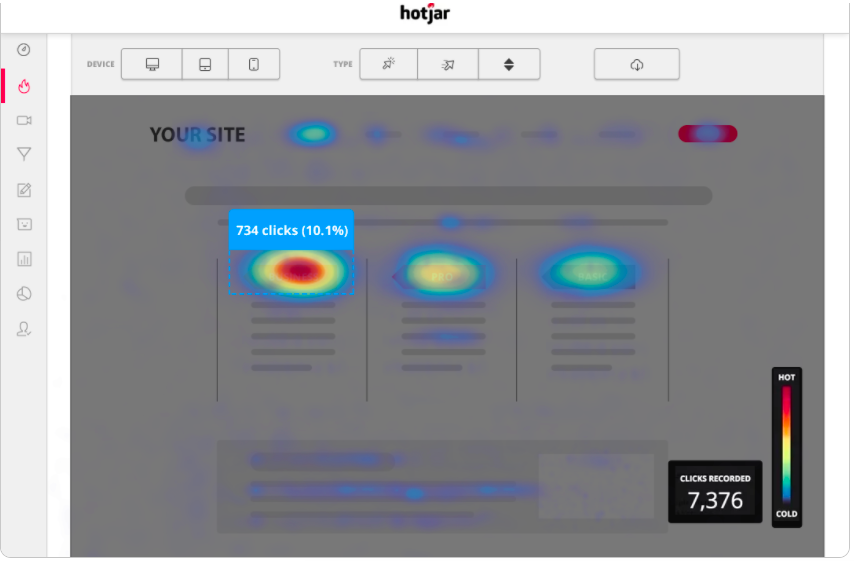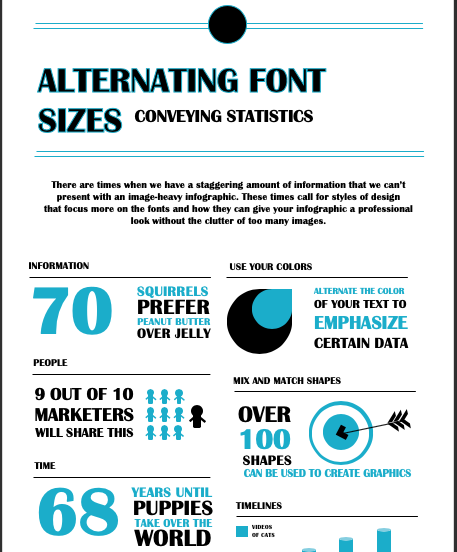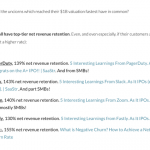- Like
- SHARE
- Digg
- Del
- Tumblr
- VKontakte
- Flattr
- Buffer
- Love This
- Save
- Odnoklassniki
- Meneame
- Blogger
- Amazon
- Yahoo Mail
- Gmail
- AOL
- Newsvine
- HackerNews
- Evernote
- MySpace
- Mail.ru
- Viadeo
- Line
- Comments
- Yummly
- SMS
- Viber
- Telegram
- JOIN
- Skype
- Facebook Messenger
- Kakao
- LiveJournal
- Yammer
- Edgar
- Fintel
- Mix
- Instapaper
- Copy Link
The tough part is over — your budget’s been approved for the next quarter. But now, another challenge looms how to spend that money.
You might be a little lost about how best to allocate your budget. Consider the resources and tools your team needs to do their jobs well. Additionally, leave a little room for celebrating your team for their wins — both big and small.
So, how do you accurately plan out that perfectly balanced budget?
Whether you have “use-it-or-lose-it” funds left over from the quarter, or are putting together a budget for the first time, here are some guidelines for allocating that money effectively.
How to spend your marketing budget
- Test new versions of calls-to-action that are performing poorly.
- Identify improvement opportunities on your homepage.
- Revise landing page copy.
- Find SEO keyword opportunities on your website.
- Do a social media engagement analysis.
- Conduct a usability test.
- Try ad retargeting to boost performance.
- Experiment with social media advertising.
- Invest in employee knowledge.
- Celebrate your success of the past quarter.
- Perform customer research.
- Design an infographic.
- Optimize your outdated blog posts for conversion.
- Perform a sales analysis.
- Invest in a better CRM integration.
- Plan and script a webinar for the next quarter.
- Localize your website for an international audience.
- Compile an ebook of relevant information.
- Contact industry thought leaders for an interview.
1. Test new versions of calls-to-action that are performing poorly.
Estimated cost: $50 per call to action
In your analytics software, sort calls to action by click rate and conversion rate. Then, redesign ones with the lowest performance and test them. One way to do this is by performing an A/B test, which will show you which design your audience prefers.
Perhaps a simple design change is in order to attract more visitors, like choosing a different photo. Or, maybe tweaking the wording can strengthen the connection you make with leads.
This test will be useful in identifying the best ways to further prospects along in their buying journey.
2. Identify improvement opportunities on your homepage.
Estimated cost: $150
Install heat map tracking software, like Hotjar or Crazy Egg, on your homepage. This software will show where people are clicking and how far they are scrolling down the page.

These tools will help you determine if your audience is finding the content you want them to see the most. You’ll gain a good idea of if you need to restructure your webpages to be more effective.
3. Revise landing page copy.
Estimated cost: $150 per page
There’s always room for improvement on your landing pages. Start with pages that have conversion rates of less than 20% and rework the language to tune it into your target persona’s needs.
If you are unsure which language will resonate with your audience, conduct keyword research and perform A/B tests. Additionally, do a little social listening. These methods will help you understand how to connect with your audience on multiple pages.
4. Find SEO keyword opportunities on your website.
Estimated cost: $250
SEO keywords help you use language that improves rank on search engines and boost acquisition. For instance, if you spot a couple of offers that aren’t performing as well as you’d hoped, research the keywords surrounding that topic and revise your offers accordingly.
Find software that has built-in SEO tools, like HubSpot’s CRM. These tools optimize your content to get found on search engines.
5. Do a social media engagement analysis.
Estimated cost: $250
An analysis of social media messages will reveal which received the most engagement. Find out what worked best for your business. If you find that one or two channels are outperforming others, you can begin to infer how to plan for its use next quarter. Maybe you invest more into successful messages or deactivating underperforming accounts.
Or maybe you’ve found that there’s a huge YouTube audience you’re missing out on. Look at your analysis and decide if YouTube is worth investing in moving forward. Check out this resource for growing a YouTube audience in a little over a year for quick tips.
6. Conduct a usability test.
Estimated cost: $350
A usability test gives real feedback from potential customers. Similar to the results you get from a Net Promoter Score, you’ll figure out what customers are and aren’t liking about your web pages.
Using the results from a usability test, figure out how to revise the content on your website to be more user-friendly. For instance, if you find that your product pages aren’t effective, you can mark this as a place to work on for the next year.
7. Try ad retargeting to boost performance.
Estimated cost: $500
Ad retargeting catches those visitors who almost converted into customers. They bridge that gap so the process is completed. Retargeting ads give you the chance of hooking in a previously interested lead with a new, personalized offer.
Ad retargeting can give your acquisition numbers a boost. Look for ad retargeting options on social networks like Facebook, so you can build and revise ads within the channel.
8. Experiment with social media advertising.
Estimated cost: $500
Social media strategies should be evolving as customer behavior evolves. When you hit a block with planning, mix up your strategy. Try a new channel or a new approach with a network you’re already using
Advertising with social media takes some experimentation. Knowing your audience and conducting social listening gives you an idea of how and where to reach your audience, but knowing which copy, format, and design will be a hit calls for some testing.
9. Invest in employee knowledge.
Estimated cost: $500
Because marketing is an ever-changing industry, investing in learning opportunities makes your team well-equipped to excel in their day-to-day tasks. Training can come in the form of ebooks, blog posts, or webinars.
Additionally, scope out courses online that will give team members a deeper understanding of the industry. For example, HubSpot Academy offers courses about content marketing, social media marketing, and sales, in digestible, interactive lessons. Courses update as needed, so you don’t have to worry about getting a certification for an outdated skillset.
10. Celebrate your success of the past quarter.
Estimated cost: $500
Remember to allocate some funds to celebrate your colleagues and their wins for the quarter. This doesn’t have to be a huge blowout party, but it could be something small, like sending colleagues a care package, that will remind your team their hard work is appreciated.
Come up with superlatives and present them in a year-end meeting. Awards like “Best Movie Buff,” or “Funniest Marketer” build up morale.
11. Perform customer research.
Estimated cost: $500
Customer research is important. You may have done previous customer research at the start of the quarter, but allocate some funds on an ongoing basis to routinely refresh your understanding of customer behavior.
For instance, how are you monitoring the web behavior of your customers? Are you investing in social listening tools? And have you revised your personas to reflect the change in customers?
Invest in tools that will help you accurately perform customer research so you can develop new ideas and strategies for future campaigns.
12. Design an infographic.
Estimated cost: $150
Run an analysis, such as a deep dive into customer demographics on Twitter, and create an infographic to give your results a visual representation. This infographic can be used to provide a bird’s eye insight about a section of your customer base. Additionally, infographics can serve as great material for a blog post.
Check out this infographic about font sizes. On the surface, it sounds like a dull topic. An infographic makes the information more exciting and easier to comprehend.
 If you were to write a blog post about social media demographics in the marketing industry, for example, you could use the Twitter infographic to illustrate your findings. You can use a tool like Canva to design your infographic (Plus, it’s a tool that integrates with HubSpot).
If you were to write a blog post about social media demographics in the marketing industry, for example, you could use the Twitter infographic to illustrate your findings. You can use a tool like Canva to design your infographic (Plus, it’s a tool that integrates with HubSpot).
13. Optimize your outdated blog posts for conversion.
Estimated cost: $100
Because the life of a blog post can span several months, and because you’ve published new content offers, you may need to revisit old posts and see if there’s a more relevant call to action to improve conversion on your blog.
SEO tools help identify posts that are falling in traffic and can be updated with new information. Keeping an archive of previous blog posts will assist with keeping track of blog performance.
14. Perform a sales analysis.
Estimated cost: $1,000
Finding qualified contacts in your CRM that your company wasn’t able to connect with could close sales that didn’t happen last quarter. With a sales analysis, identify those contacts so you know who exactly to target within the next few months.
Once this is done, come up with ideas to reach out to those customers and connect with them. There are a couple different ways to do this: You can send a personalized email, for example, create a specialized offer just for closing sales, or look into performing an account-based marketing campaign.
15. Invest in a better CRM integration.
Estimated cost: $300
Does your website automatically send leads into your CRM? Can your sales and marketing teams share feedback on leads? Now might be the time to make adjustments to your CRM integration to make it work better for your company.
Look into CRMs that automatically integrate with the programs you use on a daily basis, like HubSpot. This will streamline all the work you need to get done. Collaboration between teams will improve as well as navigation between the inner workings of your job duties.
15 Conduct an SEO audit on your website.
Estimated cost: $500
Re-evaluate your website for SEO opportunities every six months or so. Have your core web pages reviewed to optimize on-page factors, and review web copy for missing keywords.
SEO audits clean up your website, improve the user experience, and boost the chance of web pages being found on search engines. When you improve the SEO language on specific pages, you’re making them easier to be crawled by Google and recommended to searchers.
16. Plan and script a webinar for the next quarter.
Estimated cost: $200
A webinar is a great way to generate new leads. Focus on topics that solve your target persona’s pain points and produce a high-quality webinar. It can be live and saved for later or pre-recorded.
Persona pain points you can focus on are topics you know your audience has questions about, such as sales analytics. For a webinar like this, reach out to a top salesperson at your company and ask them to host. Alternatively, interview them about topics they see as trending.
Once you shoot and edit the webinar, you can promote it via email subscribers and on social media.
17. Localize your website for an international audience.
Estimated cost: $2,000
If you have an international audience or are planning to expand internationally, remember to update your website. A localized website will make the content on it enjoyed by audiences everywhere. Go beyond translating the language and think of what customers in other countries will really love.
For instance, research some topical elements and offers that are popular in different regions — really familiarize yourself with culturally relevant graphics and website formats that are compelling to global audiences.
18. Compile an ebook of relevant information.
Estimated cost: $200
An ebook is another content marketing idea for generating leads. Studies or experiments you’ve conducted over the course of the quarter that provided interesting results could be very valuable for your customers.
Look at ebooks that are impressive and take notes of what’s inspiring about them. Decide on a topic for your ebook and work on formatting it as an offer to subscribers and for social sharing. Additionally, create an offer you can add on a couple of relevant topics to expand the reach of your ebook.
19. Contact industry thought leaders for an interview.
Estimated cost: $500
HubSpot likes to host “HubTalks,” in which different thought leaders are brought in for an interview. This could be a book author, an educator, medical professional, or motivational speaker. These talks are meant to inform or entertain attendees.
Talks like these expand the knowledge of employees and give them opportunities to explore their interests. Have your team vote on possible interviewees or topics so you’re picking the right thought leaders, and ask them to submit questions. This is a great opportunity for team bonding and learning.
It’s tough to make sure you’re spending your budget wisely. When you stop and think about what your team needs, what your audience needs, and what those parties want, however, you can begin to form a pretty good idea of how to plan out those resources.
Once you do a little research, plan your budget accordingly, and get ready to step into a new quarter on a great note.
Originally published Jun 11, 2020 3:00:00 PM, updated June 11 2020




![what-is-localized-content-[+when-to-use-it]](https://everythingflex.com/wp-content/uploads/2020/06/6146/what-is-localized-content-when-to-use-it-150x150.jpg-23keepprotocol)